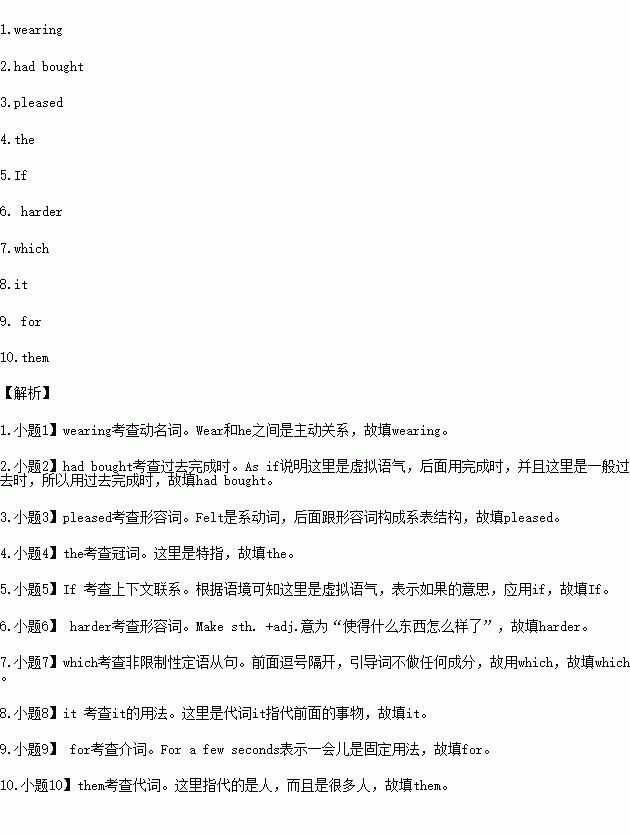题目内容
语法填空
阅读下面材料,在空白处填入适当的内容(不多于3个单词)或括号内单词的正确形式。
Mary will never forget the first time she saw him. He suddenly appeared in class one day, 1.(wear) sun glasses. He walked in as if he2. (buy) the school. And the word quickly got around that he was from New York City.
For some reason he sat beside Mary. Mary felt3. (please), because there were many empty seats in the room. But she quickly realized that it wasn’t her, it was probably the fact that she sat in 4. last row.
5. he thought he could escape attention by sitting at the back, he was wrong. It might have made it a little6. (hard) for everybody because it meant they had to turn around, but that didn’t stop the kids in the class. Of course whenever they turned to look at him, they had to look at Mary, 7. made her feel like a star.
“Do you need those glasses for medical reasons?” the teacher asked. The new boy shook his head.” “Then I’d appreciate8. if you didn’t wear them in class. I like to look at your eyes when I’m speaking to you.” The new boy looked at the teacher 9. a few seconds and all the other students wondered what the boy would do. Then he took10. off, gave a big smile and said “That is cool”.


 -wa
-wa y audio and video—you can see and hear each other.With a click of a button you can even send the dog a treat!
y audio and video—you can see and hear each other.With a click of a button you can even send the dog a treat! buy the cheapest brand of computer just to save a few dollars.
buy the cheapest brand of computer just to save a few dollars.